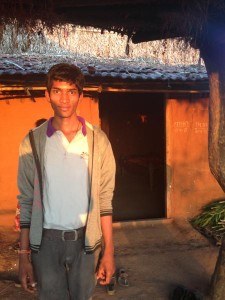A little over a month ago, I read the words of Marie Wilson, author, political organizer and founder of the White House project, for the very first time: “You can’t be what you can’t see.” Those words couldn’t have been timelier as I travelled across rural Gujarat, meeting many young men and women for whom the world they know is typically limited to the approximately 20-mile radius of mostly farmland around them. In this rural setting the Aga Khan Rural Support Programme (AKRSP) provides young people between the ages of 18 and 35 opportunities to explore more diverse sources of livelihood beyond traditional agriculture, through its Yuva Junction programme.
Developing the Skills of Young People in Rural India
Across India there is a drive to develop the skills of young people, with the aim to reach 500 million youth by 2020. Yuva Junction uniquely contributes to this national target through its work in incredibly remote, rural and tribal areas of Gujarat, Bihar and Madhya Pradesh, where agricultural-based incomes are the main sources of livelihoods. Yuva Junction mobilizes the community and works actively with parents and alumni to create an enabling ecosystem for young people to explore their potential and alternative livelihoods, and break down barriers associated with their geographical confines. Limitations of small-farm scale and access to markets make it very hard to increase incomes solely from agricultural sources. For the younger generation, the need for more diverse income sources is increasingly apparent.

Alkesh Vasava, from a remote village in Surat District, travels nearly 30 miles a day to attend training. He is excited by the prospect of a better-paying job in retail.
Recently I met Alkesh Vasava, a 20-year old from Surat District’s Rampura Village, who travels nearly 14 miles each way to attend one of Yuva Junction’s seven training centres in Gujarat. Alkesh is a typical Yuva Junction trainee – he comes from a family of five that owns roughly 4 acres on which they grow cotton and pigeon pea, with an average annual income of about Rs 63,000 (approximately US$ 1,000). Alkesh will soon complete a three-month training with Yuva Junction and likely begin an entry-level job in the retail sector in Surat, 80 miles from his village. His starting annual salary will likely be about Rs 84,000, or US$1,350. Alkesh was more determined than ever to use this opportunity to build a career beyond what he could have ever imagined for himself. His energy? Infectious.
Yuva Junction Takes a Holistic Approach to Job Training
Yuva Junction’s beginnings lie in the first Community Technology and Learning Centre (CTLC), launched in Madhya Pradesh in 2007 with the intention of teaching basic computer literacy skills to rural youth. The program has evolved to offer curricular trainings in trades, including the retail sector, Business Process Outsourcing (BPO) and Accounting, alongside structured trainings in the English language, basic computer literacy and life skills to facilitate job readiness. Recently, Yuva Junction began placing trainees into entry-level jobs with established employers in nearby cities. In 2014, they trained 1,991 youth in Gujarat and placed 567 of them in jobs.
AKRSP (India) also recognizes that many Yuva Junction trainees face challenges associated with migration and cultural shifts. In evaluating the potential to expand programming in the near future, Yuva Junction will focus on providing services to trainees that will ease their transition and improve placement retention. The program involves parents from the start and provides counseling services through the placement stage. These elements are key for supporting the trainees after their job placement retention, and especially important for female trainees.
Alkesh has visited Surat only once, yet he is genuinely confident in his ability to prevail. I have high hopes for him and for all the trailblazers Yuva Junction has created and continues to enable. Together they bring a little bit of the world into their homes.
By Farnaz Gulamhussein, former Impact Investing Fellow at the Aga Khan Foundation and now Enterprise Development Fellow with Aga Khan Rural Support Programme in India